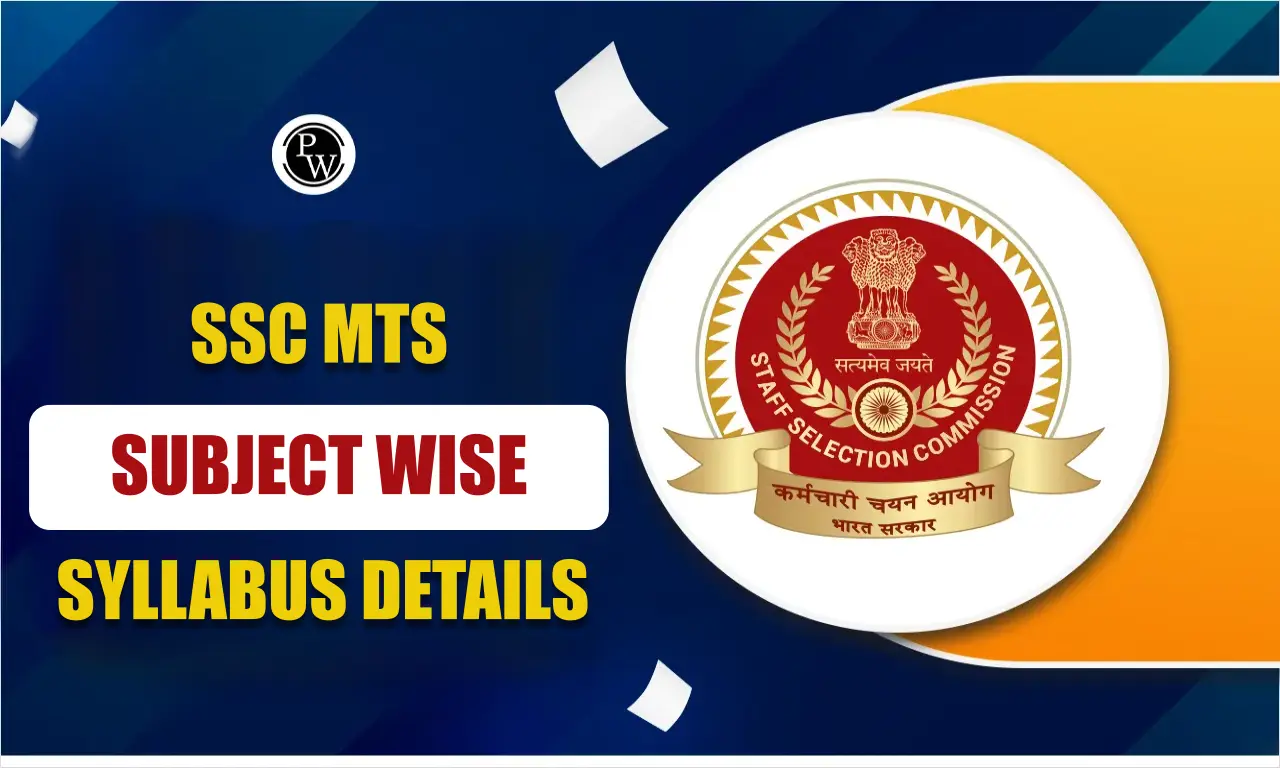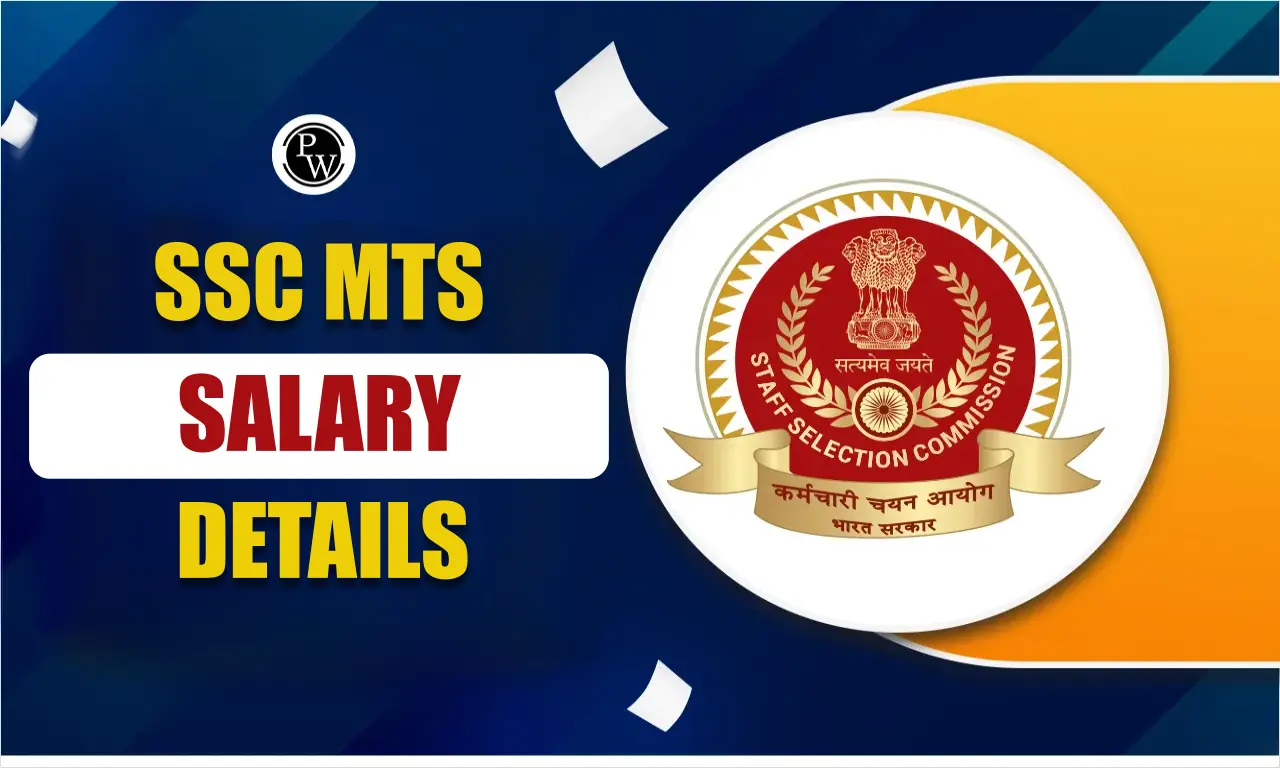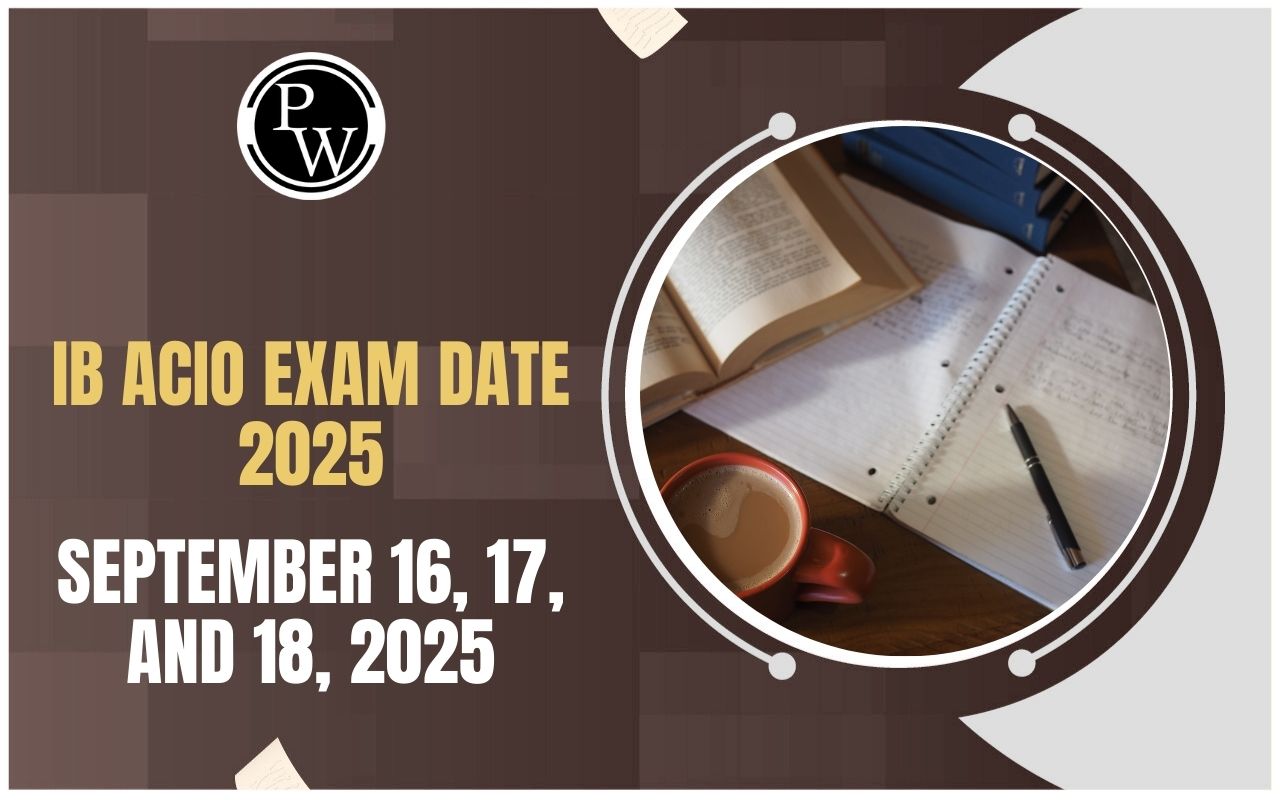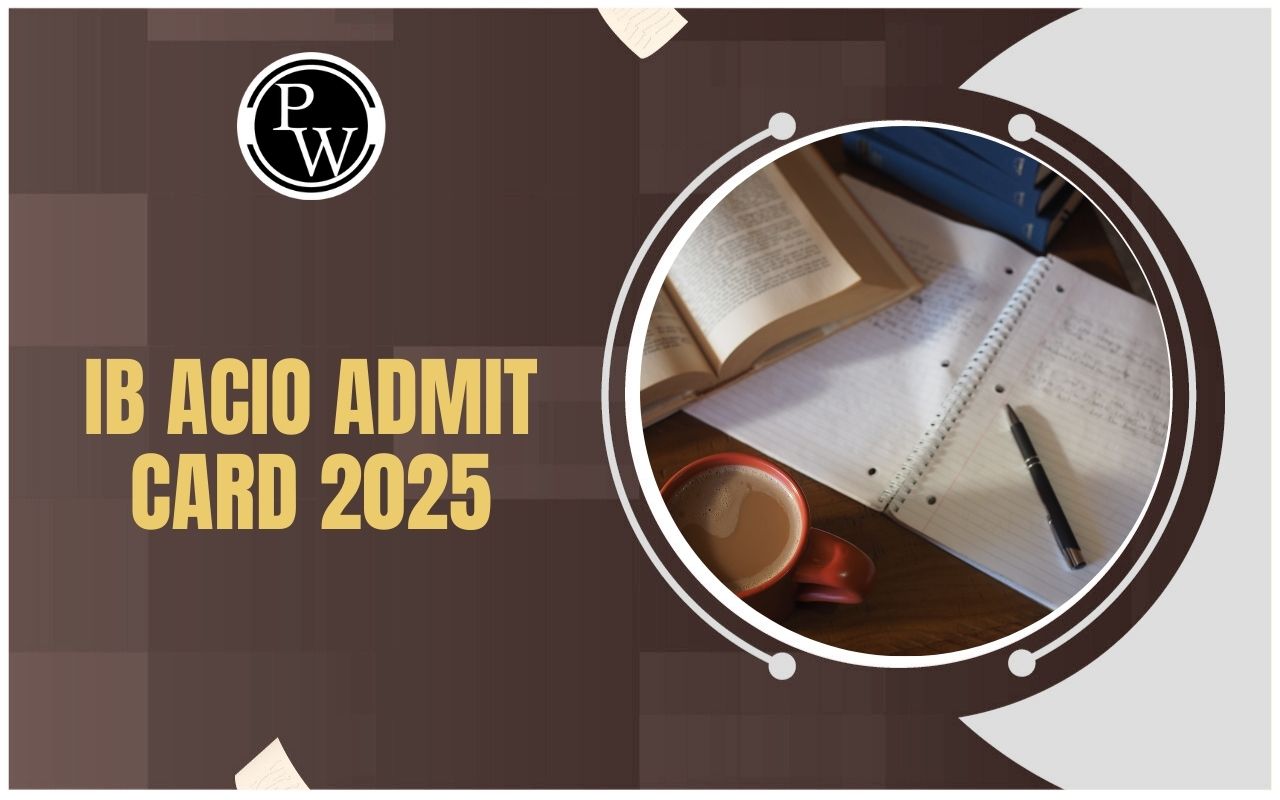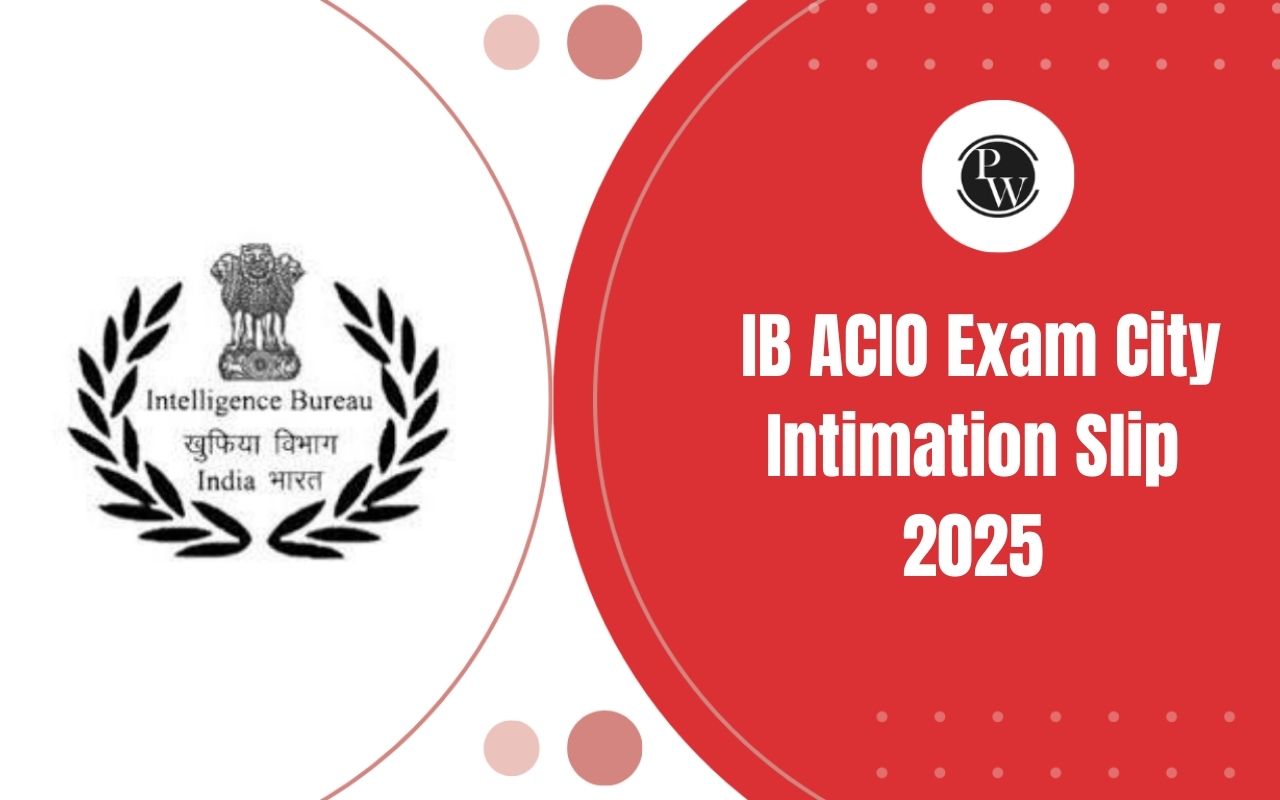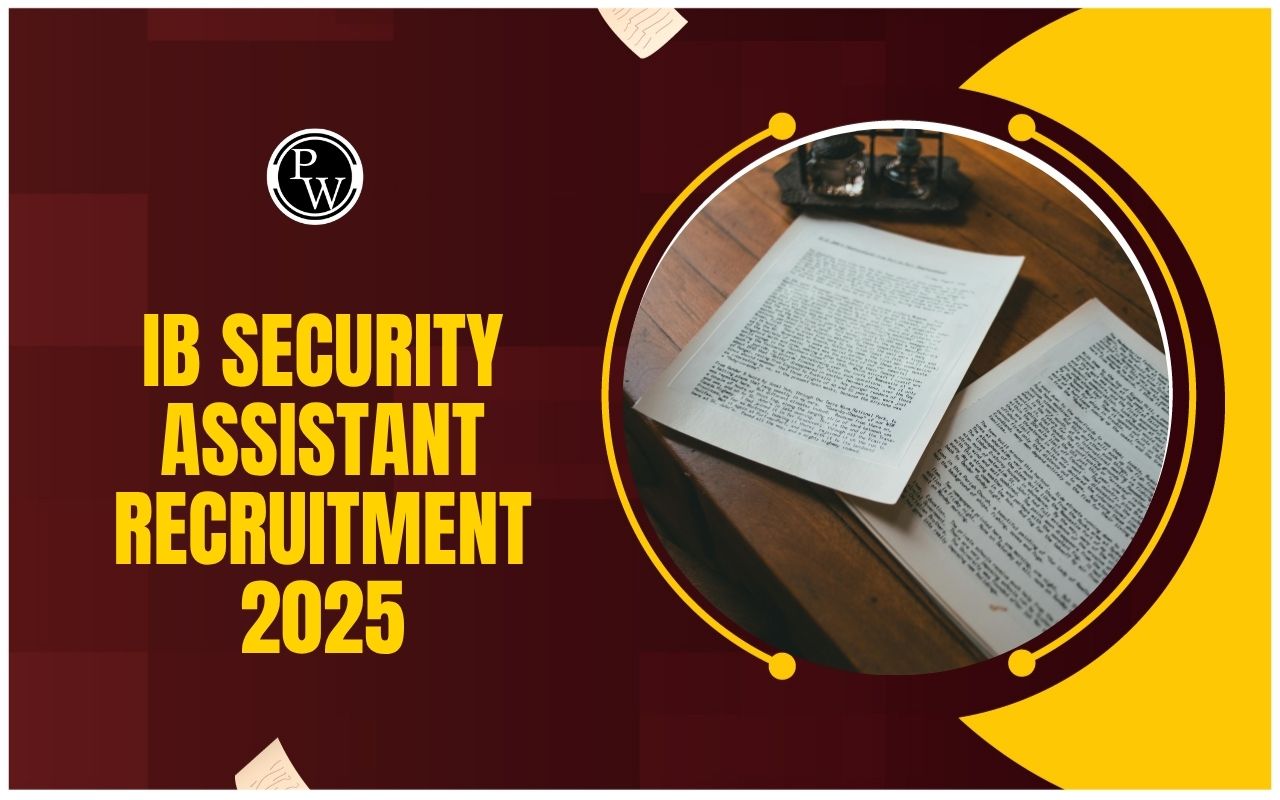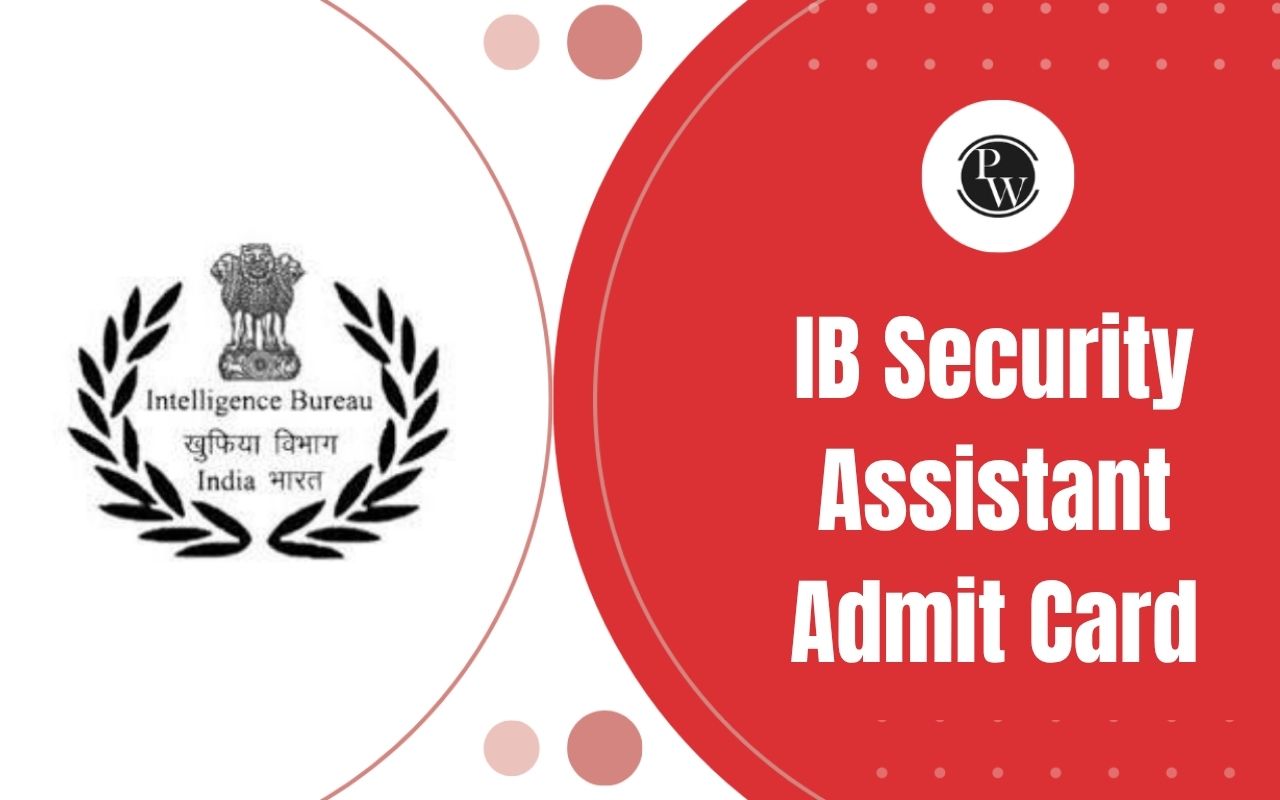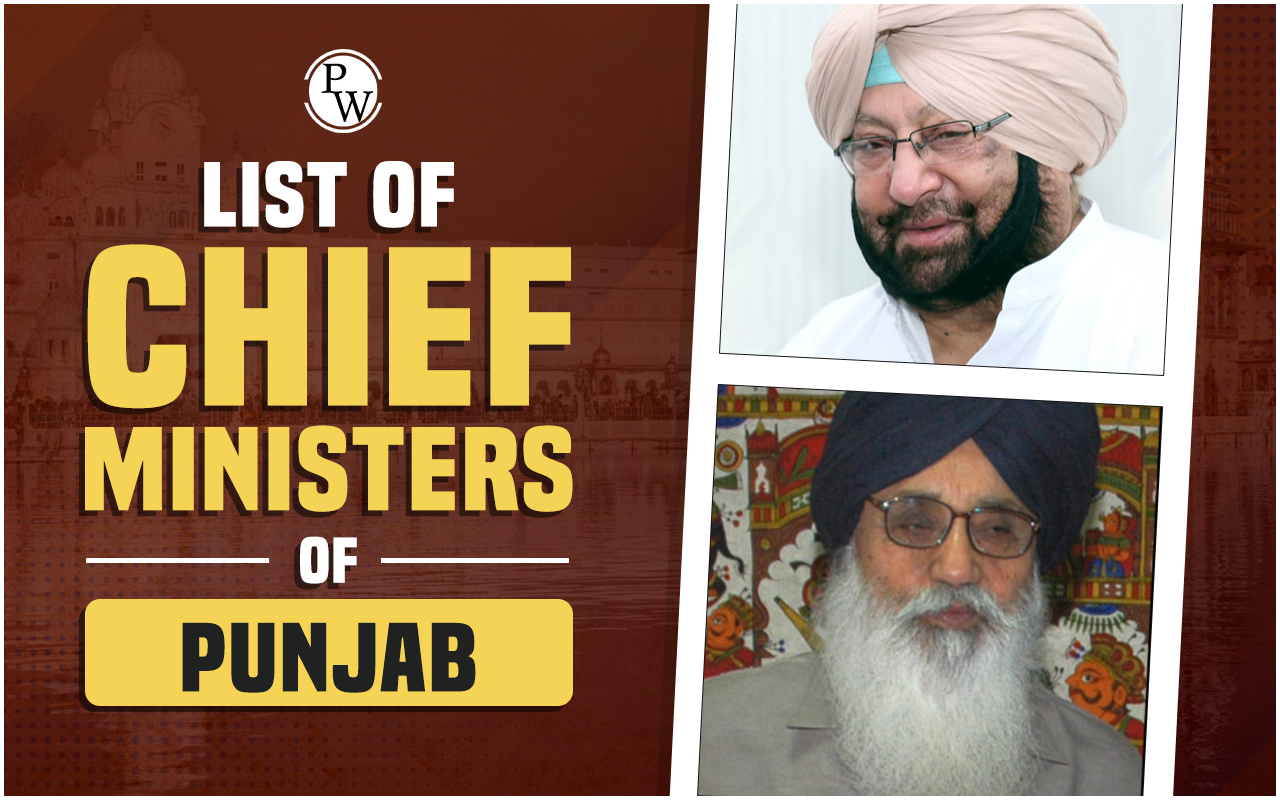
Chief Ministers of Punjab : In the state of Punjab, the Chief Minister wields the de facto executive authority, while the Governor holds the de jure position as the head of the state, as outlined in Article 164 of the Indian Constitution. Notably, Charanjit Singh Channi served as the 16th Chief Minister of Punjab. For a comprehensive roster of Punjab's Chief Ministers spanning from 1947 to the present day, go through the below article.
Chief Ministers of Punjab
Punjab is the 20th largest state in India by land area, with Chandigarh as its capital, which is also a National Capital Territory. The Chief Minister leads the state government and has powers similar to the national Head of State but at the state level. The Governor officially appoints the Chief Minister, usually choosing the leader of the main party in the state assembly. The Chief Minister can be from either the lower or upper house of the state legislature, though most come from the legislative assembly.
Chief Ministers of Punjab From 1947 to 2025 List
Bhagwant Mann assumed office as the Chief Minister of Punjab on March 16, 2022, following his swearing-in ceremony administered by the state's Governor. The Chief Minister of Punjab receives a monthly remuneration of Rs. 2,30,000. The term of office for the Chief Minister spans five years, commencing on the day of assuming the position.
| Chief Ministers of Punjab From 1947 to 2025 List | |||
| S.No. | Chief Minister | Tenure | Party |
| 1 | Gopi Chand Bhargava | 15 August 1947 - 13 April 1949 | Indian National Congress |
| 2 | Bhim Sen Sachar | 13 April 1949 - 18 October 1949 | Indian National Congress |
| 3 | Gopi Chand Bhargava | 18 October 1949 - 20 June 1951 | Indian National Congress |
| President’s Rule | 20 June 1951 - 17 April 1952 | ||
| 4 | Bhim Sen Sachar | 17 April 1952 - 23 January 1956 | Indian National Congress |
| 5 | Partap Singh Kairon | 23 January 1956 - 21 June 1964 | Indian National Congress |
| 6 | Gopi Chand Bhargava | 21 June 1964 - 6 July 1964 | Indian National Congress |
| 7 | Ram Kishan | 7 July 1964 - 5 July 1966 | Indian National Congress |
| President’s Rule | 5 July 1966 - 1 November 1966 | ||
| 8 | Giani Gurmukh Singh Musafir | 1 November 1966 - 8 March 1967 | Indian National Congress |
| 9 | Gurnam Singh | 8 March 1967 - 25 November 1967 | Akali Dal – Sant Fateh Singh (BJS-CPI) |
| 10 | Lachhman Singh Gill | 25 November 1967 - 23 August 1968 | Punjab Janta Party (INC) |
| President’s Rule | 23 August 1968 - 17 February 1969 | ||
| 11 | Gurnam Singh | 17 February 1969 - 27 March 1970 | SAD-BJS |
| 12 | Parkash Singh Badal | 27 March 1970 - 14 June 1971 | Shiromani Akali Dal (BJS) |
| President’s Rule | 14 June 1971 - 17 March 1972 | ||
| 13 | Zail Singh | 17 March 1972 - 30 April 1977 | Indian National Congress |
| President’s Rule | 30 April 1977 - 20 June 1977 | ||
| 14 | Parkash Singh Badal | 20 June 1977 - 17 February 1980 | Shiromani Akali Dal (JP-CPI) |
| President’s Rule | 17 February 1980 - 6 June 1980 | ||
| 15 | Darbara Singh | 6 June 1980 - 6 October 1983 | Indian National Congress |
| President’s Rule | 6 October 1983 - 29 September 1985 | ||
| 16 | Surjit Singh Barnala | 29 September 1985 - 11 June 1987 | Shiromani Akali Dal |
| President’s Rule | 11 June 1987 - 25 February 1992 | ||
| 17 | Beant Singh | 25 February 1992 - 31 August 1995 | Indian National Congress |
| 18 | Harcharan Singh Brar | 31 August 1995 - 21 November 1996 | Indian National Congress |
| 19 | Rajinder Kaur Bhattal | 21 November 1996 - 11 February 1997 | Indian National Congress |
| 20 | Parkash Singh Badal | 12 February 1997 - 26 February 2002 | Shiromani Akali Dal (BJP) |
| 21 | Amarinder Singh | 26 February 2002 - 1 March 2007 | Indian National Congress |
| 22 | Parkash Singh Badal | 1 March 2007 - 16 March 2017 | Shiromani Akali Dal (BJP) |
| 23 | Amarinder Singh | 16 March 2017 - 18 September 2021 | Indian National Congress |
| 24 | Charanjit Singh Channi | 20 September 2021 - 16 March 2022 | Indian National Congress |
| 25 | Bhagwant Mann | 16 March 2022 - Incumbent | Aam Aadmi Party |
First Chief Minister of Punjab
Gopi Chand Bhargava was a prominent figure in the early political landscape of Punjab, India. Born on 3 November 1889, he emerged as a leader known for his dedication to the Indian National Congress. Bhargava played a pivotal role in the pre-independence era, contributing significantly to the freedom movement against British colonial rule. His tenure as the first Chief Minister of Punjab, from 15 August 1947 to 13 April 1949, marked a crucial phase in the state's history as it transitioned into an independent entity after Partition. During his leadership, Bhargava worked tirelessly to stabilize the newly formed state, focusing on rehabilitation efforts for refugees and addressing the administrative challenges that arose during this critical period.
Beyond his political career, Gopi Chand Bhargava was known for his commitment to education and social welfare. He championed initiatives to promote literacy and education in Punjab, recognizing their paramount importance in nation-building. His legacy continues to be celebrated as a testament to his unwavering dedication to the people of Punjab and his pivotal role in shaping the early trajectory of the state post-independence.
Current Chief Minister of Punjab
Bhagwant Mann, the current Chief Minister of Punjab, assumed office on March 16, 2022, marking a significant political shift in the state. A prominent leader of the Aam Aadmi Party (AAP), Mann brings with him a reputation for being a charismatic and approachable figure. Known for his candid and relatable style, he gained popularity as a comedian and actor before entering politics. His rise to power represents a growing appetite for alternative political options in Punjab.
Longest Chief Ministers of Punjab
Parkash Singh Badal, a stalwart in Punjab's political arena, boasts a distinguished career marked by his extensive service to the state. Born on December 8, 1927, in the village of Abul Khurana, he has been a dominant figure in Punjab politics for several decades. Badal's political journey began in the early 1950s when he became a member of the Shiromani Akali Dal (SAD), a party deeply rooted in Sikh ethos and the champion of Sikh rights. Over the years, he rose through the ranks and eventually assumed the office of Chief Minister of Punjab on multiple occasions, making him one of the longest-serving chief ministers in the state's history.
Chief Ministers Of Punjab FAQs
Who was the first Chief Minister of Punjab?
Who is the current Chief Minister of Punjab?
How many Chief Ministers has Punjab had till now?
What is the term duration for the Chief Minister of Punjab?
Can a Chief Minister serve more than two terms in Punjab?

